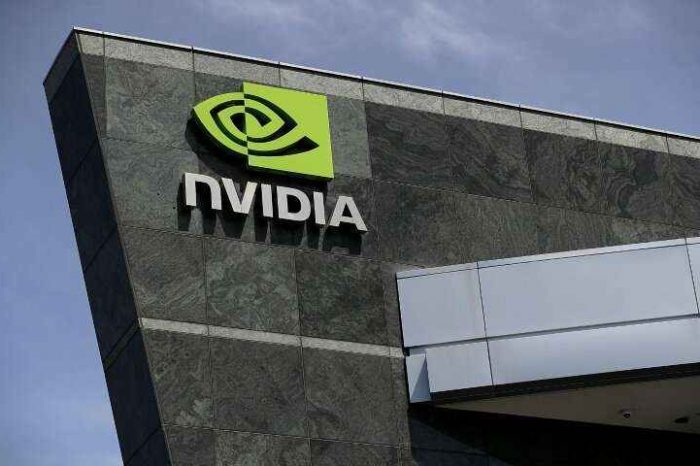Top Tech News Today, October 27, 2025

Top 10 Tech News Stories Today — Your quick briefing on the Latest Technology News, Startup Trends, and Innovation shaping the future.
It’s Monday, October 27, 2025, and we’re back with the Top 10 Technology News Stories for the Day. Each morning, we bring you the most important headlines driving the tech world — From OpenAI’s new browser to Nvidia’s $3B robotaxi push — here are the biggest tech stories shaping startups and innovation over the past 12 hours.
Whether you’re a founder, investor, or tech enthusiast, this daily digest keeps you informed and ahead of the curve — without scrolling endlessly through feeds.
Here’s your roundup of the latest tech news making waves today.
Latest Tech News Today
1. Nvidia Is Reportedly Planning a Robotaxi Project to Challenge Tesla and Waymo
Nvidia is reportedly developing a $3 billion robotaxi initiative that could rival Tesla and Waymo, marking its most ambitious move yet into autonomous mobility. Unlike multi-stage approaches, Nvidia plans a single-stage end-to-end AI model, training one neural network reinforced through simulation-generated world models.
The project builds on nearly a decade of autonomous software research, though Nvidia has yet to launch a mass-market driving system. Industry insiders say the company’s strength in GPUs and simulation tech gives it a unique edge—potentially making the robotaxi race not just about cars, but about compute.
Source: KR Asia
2. OpenAI Launches ChatGPT Atlas — a Browser That Talks Back
OpenAI has introduced ChatGPT Atlas, a new browser designed to replace search with dialogue. Built on GPT-5, Atlas helps users summarize news, compare prices, and book services directly through chat. On BBC News, it highlights trending stories; on booking sites, it can recommend cheaper options.
But access is tiered. Free users quickly hit usage limits, nudging them toward ChatGPT Plus. Analysts say OpenAI’s challenge isn’t innovation—it’s conversion. With over 800 million users but just 5% paying, the company needs Atlas to turn engagement into revenue. Its success will hinge on whether users are willing to pay for smarter browsing without sacrificing privacy.
Source: BBC.com
3. Valthos Launches With $30 Million Backed by OpenAI
AI biodefense startup Valthos emerged from stealth with $30 million from OpenAI, Founders Fund, and Lux Capital. Co-founder Michael McMahon, formerly of Palantir, says the platform will detect and neutralize biothreats in real time.
This marks OpenAI’s latest move into applied science and security—an early indicator of how AI capital is expanding beyond software into bio-risk management and national-security infrastructure.
Source: TechStartups
4. Cal State Partners With Tech Giants to Build AI-Empowered Universities
The California State University system, serving 460,000 students, is partnering with Amazon, OpenAI, and Nvidia to become the country’s first AI-empowered university. The $16.9M deal will bring ChatGPT Edu to over half a million students and staff—the largest deployment yet of OpenAI’s education product.
Supporters call it a leap toward aligning skills with industry demand; critics see it as an academic surrender to Big Tech. Faculty members warn of rising costs, diminished critical thinking, and overreliance on corporate tools. The initiative highlights a new tension in higher education: embracing AI while maintaining independence.
Source: NYTimes.com
5. Government Rules Out Copyright Exemption for AI Training
The U.S. Copyright Office has rejected calls to exempt AI developers from licensing requirements for training data. That means models built on copyrighted text, images, or audio still need explicit rights—or risk lawsuits.
This ruling cements the idea that “free training data” is over. Startups will now face higher costs and slower model development, while content creators regain leverage in negotiations. Expect more litigation as the AI ecosystem adapts to a regulated data economy.
Source: StartupDaily.net
6. Big Tech Earnings Could Steer Markets Through Year-End
All eyes are on Microsoft, Amazon, and Alphabet as they report earnings this week—results that could shape both Wall Street and the venture market. Tech valuations remain near 2021 highs, but investor patience has shifted from growth stories to profit metrics.
If the earnings miss, the correction could ripple through late-stage private markets. But a strong showing could reaffirm investor belief that AI-driven margins justify the valuations. Either way, public-market signals will set the tone for Q4 funding rounds.
Source: SeekingAlpha.com
7. Ads Might Be Coming to Apple Maps Next Year
Apple is reportedly preparing to bring ads to Apple Maps in 2026. Businesses will be able to pay for promoted listings—similar to Google Maps—allowing restaurants or retail stores to surface higher in search results.
It’s part of Apple’s broader effort to expand its services revenue. But critics question whether users will tolerate ads invading core system apps. If executed well, Maps ads could unlock a lucrative channel; if not, Apple risks turning a trusted utility into an ad network.
Source: TechCrunch.com
8. Smart Beds Helped Them Sleep on a Cloud, Then Went Dark as AWS Outage Disrupted Eight Sleep
An AWS outage left Eight Sleep customers tossing and turning after its smart mattresses lost cloud connectivity, freezing temperature controls overnight. CEO Matteo Franceschetti apologized and announced a new “Backup Mode” to connect locally via Bluetooth.
The episode underscores a growing vulnerability in IoT: reliance on cloud services for basic functionality. As smart-home devices proliferate, companies will need hybrid systems to keep products running even when AWS goes down.
Source: NYTimes.com
9. Accel and Prosus Team Up to Back Early-Stage Indian Startups
Accel and Prosus have joined forces to back early-stage Indian startups tackling systemic challenges—from automation to manufacturing. The partnership will co-invest between $100K – $1M per startup, with Prosus matching Accel’s checks while deprioritizing equity stakes.
The collaboration signals renewed global confidence in India’s innovation economy. Despite VC funding dropping 25% year-over-year, both firms see an opportunity to build “leap tech” ventures designed for India’s 1.4 billion-strong market.
Source: TechCrunch.com
10. Green Hydrogen Startup Hydgen Raises $5 Million Pre-Series A
Clean-energy startup Hydgen secured $5 million from Transition Venture Capital and others to expand its on-site green hydrogen generation systems. Its modular units allow industrial clients to decarbonize without overhauling existing infrastructure.
While climate funding has cooled from 2022 highs, capital continues to flow into deep-tech decarbonization. Hydgen’s raise signals sustained investor belief in hydrogen’s long-term role in industrial transition.
Source: Economic Times
Bonus Funding Story: DDLoop Wins Legal-Tech Pitch Night With AI Due-Diligence Platform
Sydney-based DDLoop won this year’s Legal Pitch Night for its AI-driven due diligence platform that automates M&A and financing reviews. Judges cited its ability to simplify complex document workflows without compromising accuracy.
Legal-tech adoption remains early-stage, but DDLoop’s recognition shows a clear trend: investors are warming to AI tools that remove bottlenecks in high-stakes, regulated industries.
Source: StartupDaily.net
Closing Note
AI continues to expand from browsers to biology, while hardware and infrastructure remain the backbone. Nvidia’s $3B robotaxi bet and Cal State’s OpenAI deal reflect the same pattern: intelligent systems are scaling from screens into streets and classrooms. For founders and investors, the next frontier isn’t just building smarter tools—it’s ensuring they survive real-world complexity.
Here’s the full breakdown. Until tomorrow, have a great day.




